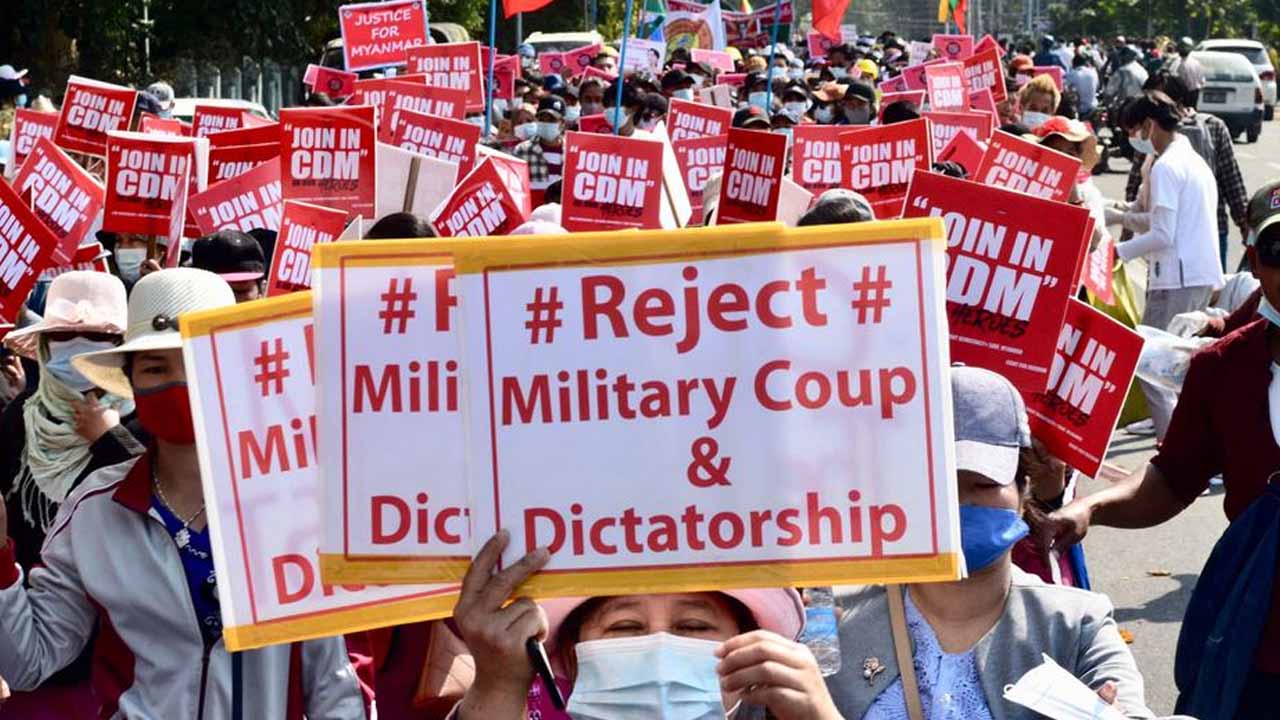At least 1,500 people have been killed by security forces in Myanmar since the February 1, 2021 coup, a figure the UN says does not take into account “thousands of additional deaths due to armed conflict and violence, which escalated across the country”.
“The people of Myanmar have paid a heavy price in lives and freedoms, and continue to tirelessly advocate for democracy,” the UN human rights chief Michelle Bachelet said in a statement, urging governments and companies to heed the voices of the people and step up the pressure on the military.
The International Labour Organisation (ILO) says about 1.6 million jobs were lost in Myanmar in 2021, with women suffering the worst setbacks, as work in factories, tourism and construction dwindled amid the pandemic and a military takeover.
In a report issued Friday, the ILO said the country was facing a “multi-dimensional humanitarian crisis” as political turmoil, violence, insecurity and displacement have been heaped on top of the troubles from the coronavirus pandemic.
The Southeast Asian country saw hours worked fall an estimated 18 percent in 2021 compared with the previous year, an amount equivalent to the time put in by 3.1 million full-time workers, according to the UN agency.
About half of all adults in Myanmar work in agriculture-related jobs and the sector has been hit by a drop in exports, lower prices, disrupted access to credit given wider troubles in the financial sector due to the coup, and flooding, the report said. Rural farmers were severely affected by “armed conflict, violence and insecurity, leading to displacement and undermining livelihoods,” the UN agency said.
The UN body said the country’s labour market remained “fragile” nearly a year after the coup.
“The military takeover and COVID-19 pandemic have put millions of workers in Myanmar in a grim situation,” ILO Myanmar Liaison Officer Donglin Li said.
The report estimates that nearly a third, or about 3,50,000, construction jobs had vanished as investors suspended or cancelled projects. About 80,000 jobs in tourism and hospitality were lost as hotels shut down. Most of those jobs were held by women. About 2,20,000 jobs are estimated to have been lost in garment manufacturing, one of the fastest-growing opportunities for female employment before the pandemic and military coup.


























